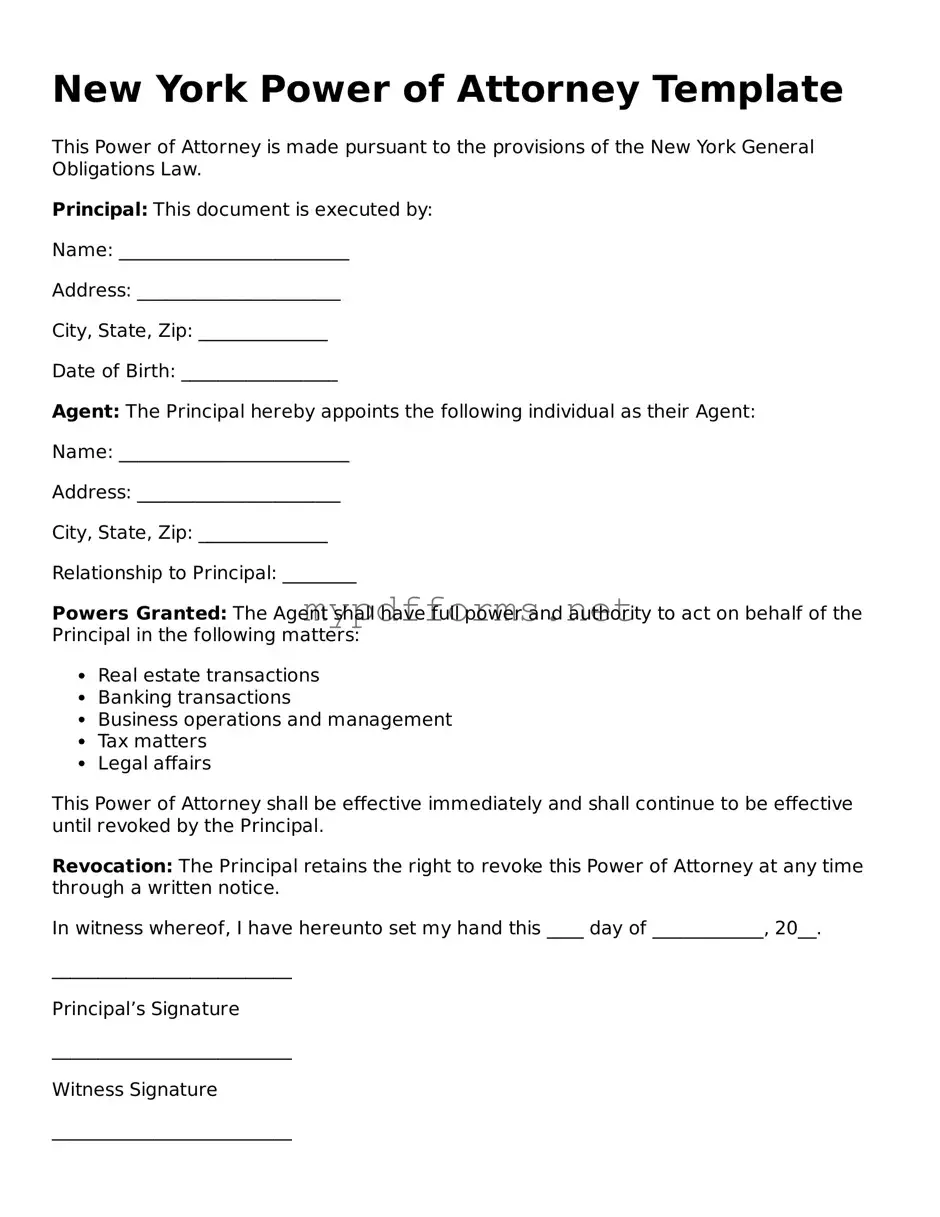The New York Health Care Proxy is a document that allows individuals to appoint someone to make medical decisions on their behalf if they become unable to do so. Like the Power of Attorney, this document empowers an agent to act in the best interest of the principal. Both documents require the principal to be of sound mind when signing and involve a trusted person who will advocate for the principal’s wishes. The Health Care Proxy specifically addresses health-related decisions, whereas the Power of Attorney can cover a broader range of financial and legal matters.
A Living Will is another document that shares similarities with the Power of Attorney. It outlines an individual's preferences for medical treatment in situations where they cannot communicate their wishes. While the Power of Attorney allows an agent to make decisions, the Living Will serves as a guide for those decisions, detailing specific treatments the individual does or does not want. Both documents work together to ensure that a person's health care and legal preferences are honored, especially during critical times.
The Durable Power of Attorney is closely related to the standard Power of Attorney but remains effective even if the principal becomes incapacitated. This feature makes it particularly important for long-term planning. Like the general Power of Attorney, it allows the agent to manage financial and legal affairs. However, the Durable Power of Attorney specifically provides continuity of authority, ensuring that the agent can continue to act on behalf of the principal without interruption.
The Revocable Trust is a document that allows individuals to manage their assets during their lifetime and dictate how those assets will be distributed after death. Similar to a Power of Attorney, it involves appointing a trustee to manage the trust assets. Both documents offer flexibility and can be altered or revoked as circumstances change. However, while the Power of Attorney primarily focuses on decision-making authority during the principal’s life, the Revocable Trust also addresses posthumous asset management.
For those in New Jersey, utilizing a comprehensive bill of sale form can greatly simplify the process of transferring ownership of personal property. This form not only serves to document the transaction but also protects both parties involved by clearly outlining the details of the sale, ensuring that all necessary information is recorded to avoid future disputes.
The Advance Directive is a broader category that includes both the Health Care Proxy and Living Will. It allows individuals to express their wishes regarding medical treatment and appoint someone to make decisions on their behalf. Like the Power of Attorney, it emphasizes the importance of having a trusted person to advocate for the principal’s desires in medical situations. Both documents aim to ensure that personal preferences are respected when the individual is unable to voice them.

